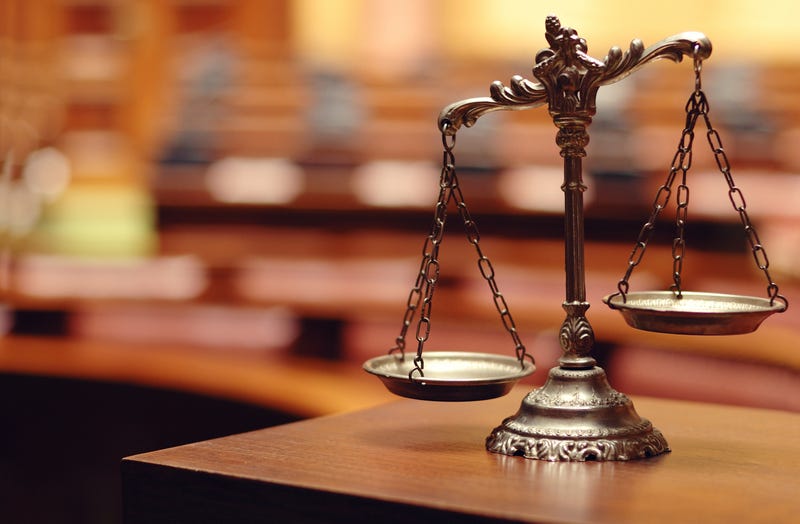
Editor's note: Crime in the Bay Area, and around California, has attracted national attention in recent months.
San Francisco's recall of former District Attorney Chesa Boudin shined a spotlight on the debate about how to increase community safety, prevent criminals from reoffending and protect victims.
In this series of special reports, KCBS Radio will examine the innovative approach of an East Bay nonprofit called the Ahimsa Collective.
In Part 4, we learn why one violent crime survivor feels uncomfortable about the program's approach.
Warning: References to violence in these stories might be upsetting to some readers.
For more, stream KCBS Radio now.
SOLEDAD, Calif. (KCBS Radio) – The survivors of crime who take part in the Ahimsa Collective's Empathize program go inside prisons for a variety of reasons.
"I get to talk about Emily," said Elle O'Dowd, whose daughter was killed by a drunk driver. "I get to talk about love."
Jane Piper, who was attacked and raped after a trip to the grocery store, said she does this work because she thinks it can help prevent the incarcerated men she speaks with from hurting others in the future.
"I just want to be a part of healing," she added. "I want to help people heal. I want to heal myself."
After hearing the survivors' stories, some of the men incarcerated at Soledad State Prison told the assembled group what they learned.
"They took their grief and something good came out of it," said one man. "And we could do the same. You're trying to show us. And there's a lot of healing going on."
But support for the program isn't universal among survivors of violence.
Patricia Wenskunas is one such person who does not like the sound of the Empathize Program's work.
"I don't like it at all,” she told KCBS Radio. "And I feel as if we're setting victims up to be re-victimized to a certain degree, or to trigger the trauma in their past, to be honest with you."
Wenskunas was attacked in 2002.
"My personal trainer came into my home, drugged me, wrapped my face and head with Saran wrap, beat me black and blue, screaming that he was going to kill me and my 12-year-old son at the time," she said.
For all of that, the attacker served about 120 days.
Wenskunas founded the nonprofit Crime Survivors to offer support and advocacy for people like her.
Piper, a rape survivor, said she knows that many people who have experienced violence would feel uncomfortable with the idea of survivors going inside prisons and working directly with people who have committed violent crimes.
She recalled what she recently told people who were part of separate support groups for survivors of sexual assault.
"I kept saying this is a very personal journey for me," Piper told KCBS Radio. "Forgiveness is not something you have to do. It's not something that is required."
But Wenskunas said she can actually relate to survivors who choose to forgive the people who harmed them as part of letting go of the fear, pain and anger.
"For me, I forgave him," said Wenskunas. "I forgave other people that victimized me. That doesn't mean I'm going to sit down and have lunch with them. It doesn’t mean that I want to meet with them because, frankly, I don’t want to be anywhere near them."
Patty O'Reilly, whom we met in Part 1 of this series, lost her husband to a drunk driver.
She told the group of men inside Soledad State Prison that as she tried to process Danny's death, she looked up the origins of the word "vengeance."
"The ancient Greek meaning of vengeance was, 'The full application of justice - nothing more and nothing less,' " she said.
More than two years after Danny was killed, O'Reilly decided to take a big step: a Victim-Offender Dialogue. It is an option the California Department of Corrections and Rehabilitation offers for people in her position.
Only victims of crime and surviving family members can request a dialogue, and forgiveness is not a requirement.
The Ahimsa Collective worked with state officials to set it up, and O'Reilly met the man who killed her husband.
She brought albums of family photos, telling him about the harm he had caused and the children he had left without a father.
"To me doing the dialogue, that was my vengeance," she told the incarcerated men. "Because that was the full application of justice, two-and-a-half years after. So I was still full-on crying all the time. For him to have to sit there across the table from me, that was justice."
What would justice have looked like to Wenskunas in her case?
"I don't know exactly what justice is," she said. "I do know that it’s more than 120 days."
In Part 5 of this series, we will hear from a man who goes by Craig. He served a 36-year sentence for violent crimes,
"Who is to say that the man who harmed this lady and got out after 120 days that he won’t do it again? Because he hasn't worked on it," he told KCBS Radio. "He probably don't understand why he did it in the first place. And so the first thing that comes up to trigger him, the chances are that he might do it again. But this time he may even take a person's life."
Special Reports from Soledad State Prison
PART 1 | PART 2 | PART 3 | PART 4 | PART 5
DOWNLOAD the Audacy App
SIGN UP and follow KCBS Radio
Facebook | Twitter | Instagram

